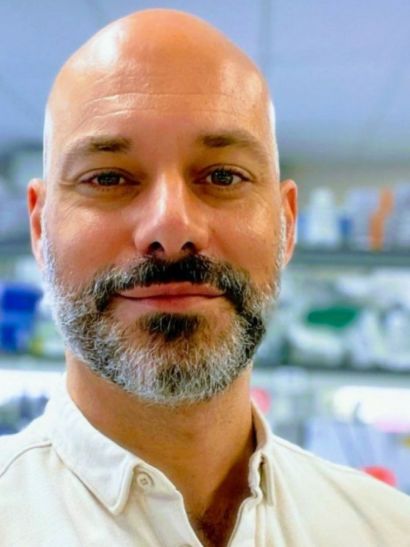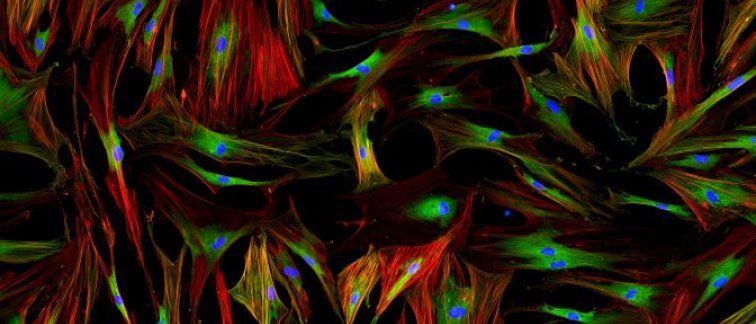Fibroblasts are spiny shaped cells that, in healthy conditions, provide structure to our connective tissue. They play a critical role in wound healing by secreting components of the extra-cellular matrix and coordinating the immune response to tissue injury. However, in tumors, fibroblasts turn into cancer associated fibroblasts (CAFs): non-cancerous components of the tumor microenvironment that can influence the growth of the cancer. CAFs are instructed by the cancer cells to use their physiological functions to help tumors grow and resist therapy. However, not all CAFs are turned to the dark side: some pancreatic CAFs have key tumor restraining features.
Turning from the dark side
Project leader and assistant professor in Human Genetics, Dr. Rodrigo Leite de Oliveira: “Targeting all CAFS in pancreatic cancer can actually worsen the outcome. This surprising result paved the way to our understanding that in pancreatic cancer CAFs are actually a heterogenous cell population. Some inflammatory CAFs, or iCAFs, have pro-tumor properties, and myofibroblastic CAFs, or myCAFs, display tumor-restraining features and therefore should be preserved.”
Dr. Leite de Oliveira and his team believe they can convert iCAFs into myCAFs if they can identify the genes that determine whether CAFs become pro- or anti-tumor types. Consequently, Cancer Center Amsterdam Foundation is funding a new project called ‘Identifying stromal regulators with therapeutic potential in pancreatic cancer’.
A CRISPR lightsaber
Using CAF precursor cells called pancreatic stellate cells, the team will use CRIPSR technology to mutate or knockout genes to identify ones that determine the fate of CAF cell development. “Instead of using the usual proliferation or viability read-outs, we will employ a fluorescence-based detection method to identify myCAFs/iCAFs based on antibody staining of established markers of both phenotypes,” says Dr. Leite de Oliveira. “Once we find the genes responsible for CAF differentiation, we can then explore ways to target these genes for therapeutic intervention.”
If we can achieve a more tumor-restraining stroma, this will be important not only in pancreatic cancer, but also in other cancer types with a strong CAF component.
 Dr. Rodrigo Leite de Oliveira, lead principal investigator
Dr. Rodrigo Leite de Oliveira, lead principal investigator
For more information contact Dr. Rodrigo Leite de Oliveira by email
People involved at Cancer Center Amsterdam – Amsterdam UMC:
Dr. Rodrigo Leite de Oliveira
Dr. Rob Wolthuis
Dr. Maarten Bijlsma
Dr. Juan Garcia Vallejo
Text by Lynita Howie

